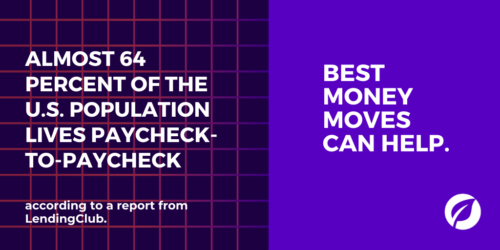Diversity, equity and inclusion have become critical values to employees. In a 2021 survey of 3,000 workers, Garter HR found that 68 percent would consider quitting their current job for an organization with a stronger stance on relevant social justice issues.
What exactly is social justice?
Social justice is generally described as an effort to secure equal rights, opportunities and treatment for all individuals. Today, many companies also incorporate economic justice as an integral part of their DEI strategy.
Many social justice causes may directly impact members of your workforce. So, supporting social justice and DEI efforts in the workplace, whether through employee benefits programs or other means, is a key component of supporting overall employee wellness.
Here are 5 ways companies can support employees by keeping social justice and DEI issues in mind when planning employee benefits.
4 ways to support employees and promote social justice in the workplace
One of the most important aspects of an effective employee retention strategy is to listen to employees and respond to their needs. According to SHRM, 56% of US employees with employer-sponsored healthcare benefits surveyed said whether or not they like their healthcare plan is a key component in their decision to stay with their current job. Offering a healthcare plan is also a way for employees to keep up with competitors as 58% of companies offer health benefits making it the most common workplace perk.
1. Integrate DEI and social justice efforts into your organization’s hiring practices.
Conscious and unconscious biases can lead to inequitable hiring processes and disparities in unemployment. For instance, candidates with white-sounding names on their resumes receive 25% more callbacks than those with Black-sounding names, according to a Harvard research study.
It’s important that HR teams stay aware of such biases during the hiring processes. Companies can take it a step further by integrating diverse representation into their hiring teams. Diverse HR professionals can help companies expand the colleges, networks and talent pools that they hire from, ultimately increasing employee representation.
2. Use financial wellness resources to help address wealth and financial literacy inequalities.
Social justice is closely linked to economic and wealth equality, according to the United Nations and the Center for Economic and Social Justice. However, wealth inequalities based on race, gender and other identities remain prevalent.
Almost 64 percent of the U.S. population lives paycheck-to-paycheck, according to a report from LendingClub. And that insecurity often disproportionately affects minority families. The median net worth of white families is nearly $190,000, compared to Black and Hispanic families, with $24,100 and $36,400, respectively, according to 2022 data collected by the Federal Reserve Bank of St. Louis.
Companies can help bridge these structural wealth gaps by offering access to financial wellness programs. Whether employees are saving for retirement, managing a day-to-day budget, or working toward a personal milestone, financial wellness and literacy programs can offer much-needed resources to employees of all backgrounds.
3. Show support for social justice causes through company match programs.
With Company match programs, employees donate to an organization (either one of their choice or from a pre-approved pool) and their employer promises to match the donation. These programs, also known as matching gift programs, are an effective way to garner support and economic justice for social causes.
Studies have shown that employees feel more motivated to support social causes when their employer offers company match programs.
4. Offer time off for cultural holidays and volunteering opportunities.
Many employees celebrate culturally significant moments that extend beyond federally observed holidays. Recognizing this, employers are increasingly allowing time off for cultural holidays like Holi, Yom Kippur and Juneteenth. This flexibility allows employees to celebrate the moments that matter most to them while maintaining a work-life balance.
Companies are also beginning to extend time off benefits to volunteering and social impact opportunities. This benefits allows employees to take time off to focus on social causes they care most about, while furthering company commitments to corporate social responsibility.
Take your benefits strategy to the next level with financial wellness solutions from Best Money Moves.
Best Money Moves is a financial wellness solution designed to help dial down employees’ most top-of-mind financial stresses. As a comprehensive financial well-being solution, Best Money Moves offers 1:1 money coaching, budgeting tools and other resources to improve employee financial wellbeing. Our AI platform, with a human-centered design, is easy to use and fit for employees of any age.
Whether it be college planning or securing a mortgage, Best Money Moves can guide employees through the most difficult financial times and topics. Our dedicated resources, partner offerings and 700+ article library make Best Money Moves a leading benefit in bettering employee financial wellness.
To learn more about Best Money Moves Financial Wellness Platform, let’s schedule a call. Contact us and we’ll reach out to you soon.


